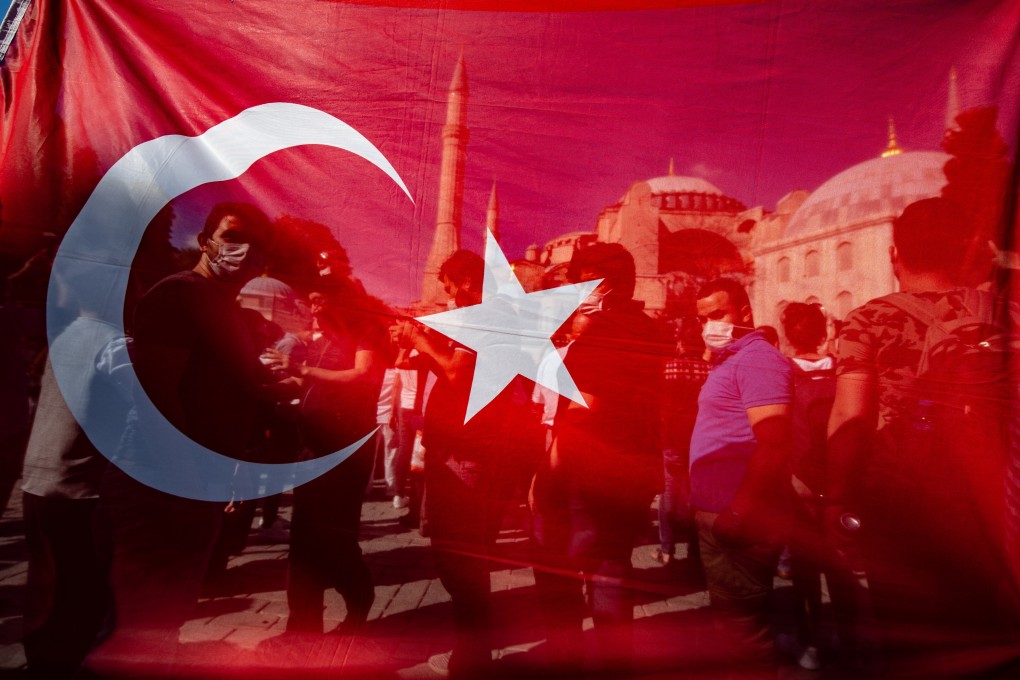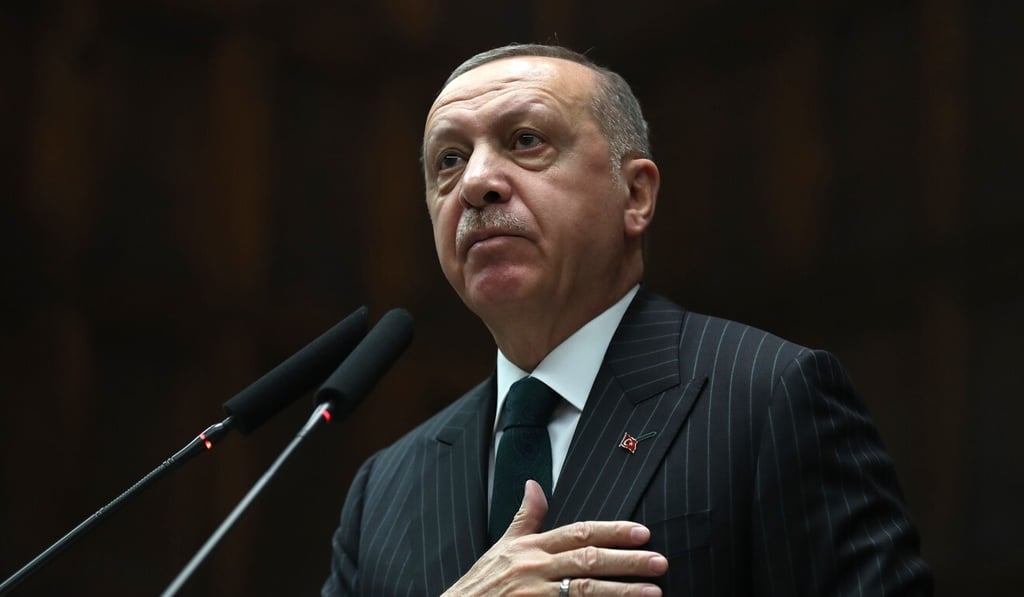Opinion | Why Hagia Sophia move spells trouble for Turkey’s President Erdogan
- Converting the iconic building back into a mosque reveals a powerful vein in Turkish politics – the right-wing Turkish-Islamic Synthesis ideology
- But while Erdogan’s decision allows him to keep the political centre onside, it is a sign of his reliance on symbols in increasingly uncertain times

After an 86-year pause, Friday prayers will resume at the Hagia Sophia this week, following Turkish President Recep Tayyip Erdogan’s decree to convert Istanbul’s iconic museum back into a mosque.
In Turkey, however, there has been little opposition to the move from Erdogan’s political rivals, even secularists. In fact, in a rare display of agreement with the government, all opposition parties save one have applauded it.
This surprising response reveals a vein in Turkish politics that is more powerful than either Islamism or secularism, yet is overshadowed by both: the Turkish-Islamic Synthesis, a right-wing ideology which holds that Islam is indispensable to Turkish identity and that Turks have a privileged role in the spread of the religion.
Hagia Sophia, known to Turks as Ayasofya, was inaugurated in 537 as the state church of the Roman Empire. It later became the patriarchal cathedral of the Eastern Orthodox Church before being ransacked by Latin crusaders in 1204. Some 250 years later, the Ottoman Sultan Mehmet II turned the majestic building into a mosque and built his seraglio, the Topkapi Palace, next to it upon conquering Constantinople. Until last week, these historic structures were by far the two most visited museums of Istanbul. No more – the church-turned-mosque-turned-museum is, once again, a mosque.

Erdogan is not the first leader to open Hagia Sophia to Muslim prayer. That distinction belongs to Turgut Ozal, the former Turkish president whose centrist political legacy Erdogan openly embraced in carrying his party to power in the early 2000s.
In 1991, Ozal dedicated the Sultan’s Pavilion, an 18th-century annex of the iconic building, to Muslim prayer without changing the Hagia Sophia’s status as a museum. Although this was a symbolic act, it went a long way towards showing how the long-held dreams of Turkey’s Muslim conservatives could be addressed without openly attacking Ataturk’s legacy. To walk this fine line, Ozal leaned on the Turkish-Islamic Synthesis.
